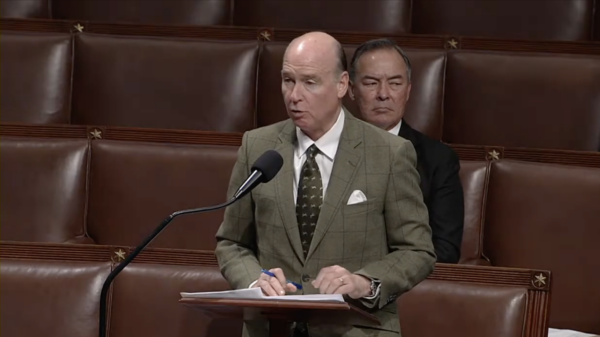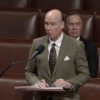U.S. Sen. Katie Britt, R-Alabama, reintroduced a piece of legislation Wednesday seeking to expand resources offered by the federal government for expecting and postpartum mothers.
The More Opportunities for Moms to Succeed Act, sponsored by Britt and U.S. Sen. Eric Schmitt, R-Missouri, would establish a government website, Pregnancy.gov, offering lists of available resources for pre and post-natal care.
A press release from Sen. Britt’s office says the MOMS Act seeks to “increase access to adoption agencies, pregnancy resource centers, and other relevant public and private resources available to pregnant women near their zip code and surrounding areas.”
Britt’s office said resources included by the bill would include both health and well-being services, alongside financial, material and legal support—including a list of federally funded pregnancy support opportunities available through non-profit or healthcare organizations.
The MOMS Act would also establish a grant program for non-profit entities “to support, encourage, and assist” women in carrying their pregnancies to term and in providing postnatal care for their children.
“The Republican Party is the party of life, the party of parents, and the party of families. At the heart of the MOMS Act is building a comprehensive culture of life to give moms, children, and families the support system they need to thrive and live their American Dream,” Britt said.
“As a mom myself, I don’t have to wonder what other moms are facing – I’m living it. I know firsthand that there is no greater blessing in life than our children, and I also understand the types of challenges that women face during their pregnancy journeys and while raising their kids,” she said. “I’m proud to support women throughout these seasons of motherhood, and the MOMS Act is part of my continued commitment to fight on their behalf.”
“Being pro-life and pro-family means valuing not only the life of the child but doing everything we can to support moms throughout pregnancy and beyond. I’m glad to introduce this bill to help ensure moms have the resources they need and help set families on the path to achieving the American dream,” said Schmitt.
Senator Britt’s press release announcing the MOMS Act’s refiling ahead of Mother’s Day mentions decreasing U.S. birth rates, alongside maternal care deficits in Alabama, as reasons for the bill’s necessity.
The press release cites a Wall Street Journal report on the U.S.’s 2023 and 2024 birth rates, which reached and remained near their lowest point since 1979, a datapoint Brit’s office called “a continued, concerning trend in America.”
Britt’s office also cites research that classified over a third of Alabama’s 67 counties as “maternity care deserts” without reliable access to birthing facilities or maternity care providers. The state’s high infant mortality rate and recent closures of three hospitals’ labor and delivery facilities were also included as reasons for the bill’s necessity.
The MOMS Act was originally introduced by Britt in May of last year.
The bill drew criticism last year from Sen. Patty Murray, D-Wa., alongside 10 other Senate Democratic women who claimed the bill would, “create a new government-run website to collect data on pregnant women and direct them to anti-abortion crisis pregnancy centers and other ‘resources’ to pressure women into carrying pregnancies to term, no matter their circumstances.”
Britt rejected the claim that the bill would create a “registry” of pregnant Americans, with a representative telling AL.com last May while users may voluntarily submit their contact information, Pregnancy.com would not require them to do so.
Alongside Britt, Cramer and Schmitt, the bill has been cosponsored by 19 Republican senators from across the nation.
According to Sen. Britt’s office, the legislation has also been endorsed by Susan B. Anthony Pro-Life America, Americans United for Life, March for Life Action, the National Right to Life Committee, Students for Life Action, Concerned Women of America, the Ethics and Religious Liberty Commission and the Human Coalition.

















































